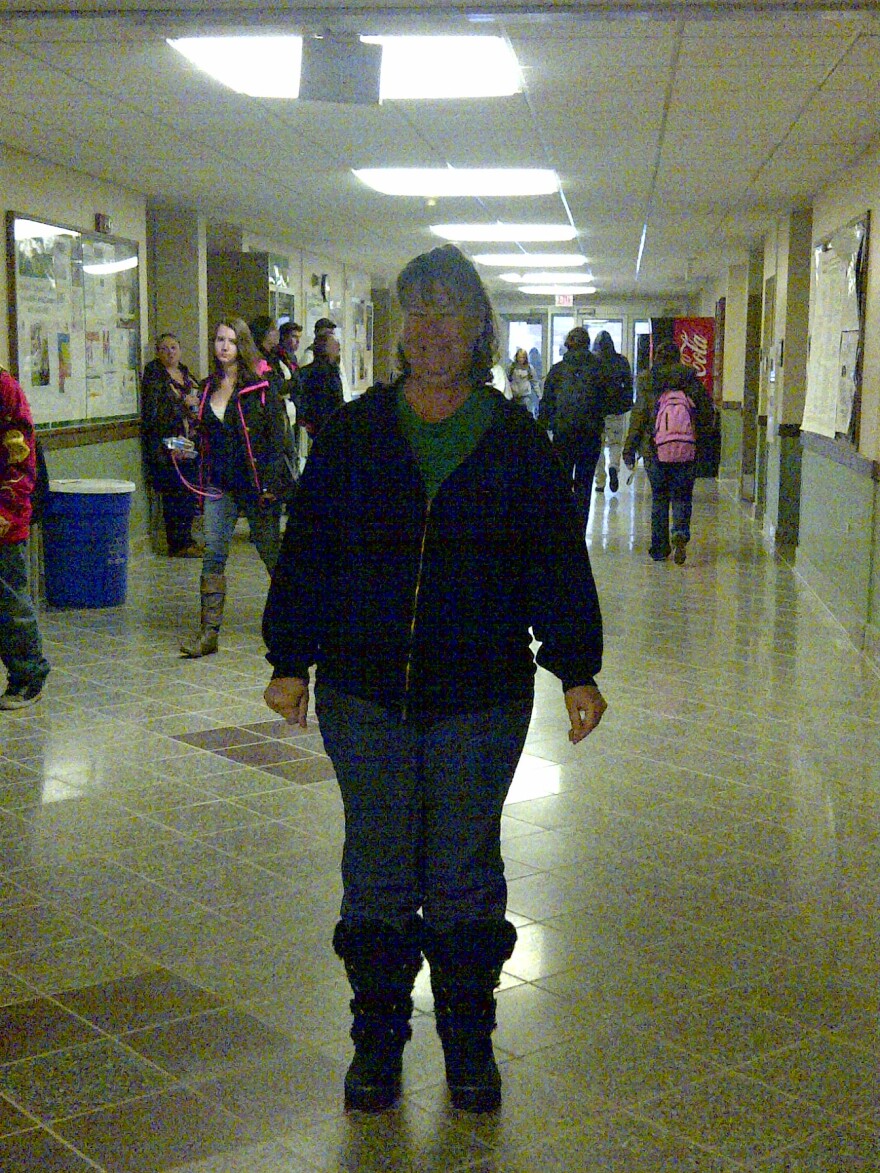If you’re over the age of twenty-five and are thinking about starting or going back to college, you’re not alone. Education officials say more and more non-traditional students are enrolling in the state’s higher-education facilities. Here we take a look at how the infrastructure of higher education is keeping up with the growing demands of non-traditional students in South Dakota.
The phrase, “I’m forty and I have homework.” may sound a bit amusing but education officials say non-traditional students are making a comeback in South Dakota and across the nation.
Non-traditional students are typically defined as those over the age of twenty-five who either begin college for the first time, or resume where they left off.
Dr. Priscilla Romkema is the Dean of the College of Business and Natural Sciences at Black Hills State University in Spearfish.
“Black Hills State has the largest percentage of non-traditional students of the six regental institutions in South Dakota,” says Romkema.
Romkema says non-traditional students are citing a variety of reasons for beginning college or going back to school – many say they see co-workers with college degrees getting promotions or making better wages, some say now that their kids are grown they finally have the time.
“Thirty, forty, fifty years old and coming back – it takes a lot. It takes courage, it takes management of your life, it takes dedicated time to study because not all of the learning of course happens in the classroom – much of it happens outside of the classroom – whether you’re traditional or non-traditional,” says Romkema.
Romkema says Black Hills State University has had a long-standing relationship with non-trads, and despite the challenges of re-acclimating to an academic environment, she says a college education can change a person’s life for the better.
Nora Gale agrees. Gale is a non-traditional student at Black Hills State and is double majoring in human services and psychology. Gale says she had a few reservations about going back to school after almost twenty years.
“I messed up college the first time when I was in my twenties and always regretted it. And so when I had a chance to come to Black Hills State and move here I decided that a four-year degree would be something that would really enhance my life and I’d be able to get a much better job,” says Gale.
Today Nora Gale is forty.
“It’s scary after you’ve been out of it for a long time and especially at our age when you didn’t use computers and all these things they use now – that was very tough to acclimate to,” says Gale.
Gale says college the second time around has been an enriching experience.
“I feel like I’ve got to do a lot of things that I wouldn’t have gotten to do normally in college. I was on the Homecoming Court, and I’m Presidential Ambassador, and I work at the Student Union so I feel like I’m really integrated into the campus,” says Gale.
You heard it right. At forty Gale was a candidate for homecoming queen at Black Hills State. Gale has also been named to the University’s Dean’s list. She is scheduled to graduate with her degree in May.
“I’m not sure what I’m going to do with it but I know that it will make me proud to have finished, and it will look good on my resume,” says Gale.
Non-traditional students also have alternatives to the traditional college campus experience – like taking online classes - which can help those that live in rural towns, or those who have other priorities and can’t make it to daytime classes.
Jack Warner is the Executive Director and CEO of the South Dakota Board of Regents. He says the bulk of Black Hills State’s non-trads take classes through the University Center in Rapid City – a higher-ed facility that was designed with non-trads in mind.
“They have work and usually family that they have to juggle along with a college workload. So rather than asking a busy person to go commute to a traditional campus the University Center was set up to make it much more convenient,” says Warner.
In addition to the Rapid City location, there are also similar higher-ed facilities in Pierre and Sioux Falls. The Sioux Falls University Center has almost nineteen-hundred students enrolled this semester and officials say the majority of them are non-trads.
Warner says making more money is just one reason non-traditional students say they are coming back to earn a degree – but he says the benefits extend beyond finances.
“You tend to educate your own children to higher levels, you enjoy better health, and when communities have high percentages of people who have earned college degrees, it actually enhances the quality of life for the entire community. Rates of incarceration are lower, numbers of people on public assistance are lower, over-all health is better,” says Warner.
Warner says it’s never too late. He says his own mother-in-law went back to school and earned her Associate’s degree from a community college - at age sixty-eight.
“You’re never too old to accomplish those goals whether they be for personal satisfaction, personal reasons, or to earn a better living and have a better quality of life,” says Warner.
Warner says he encourages anyone wanting to go to college to take the necessary steps to make it happen.


